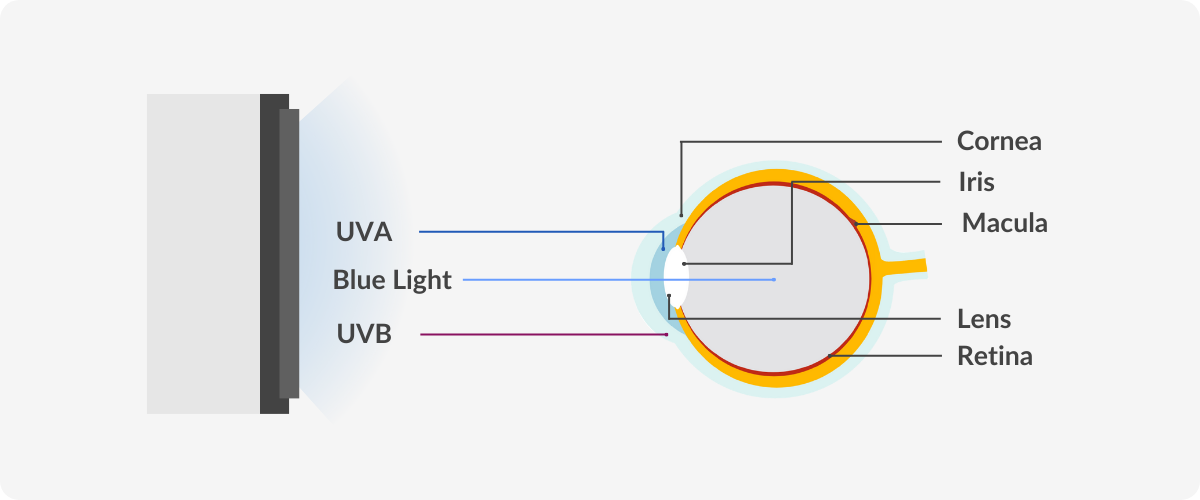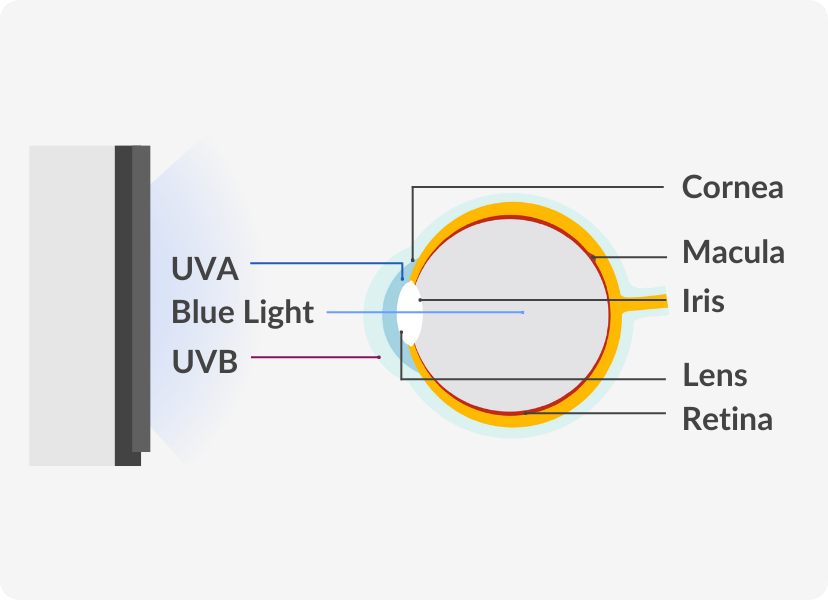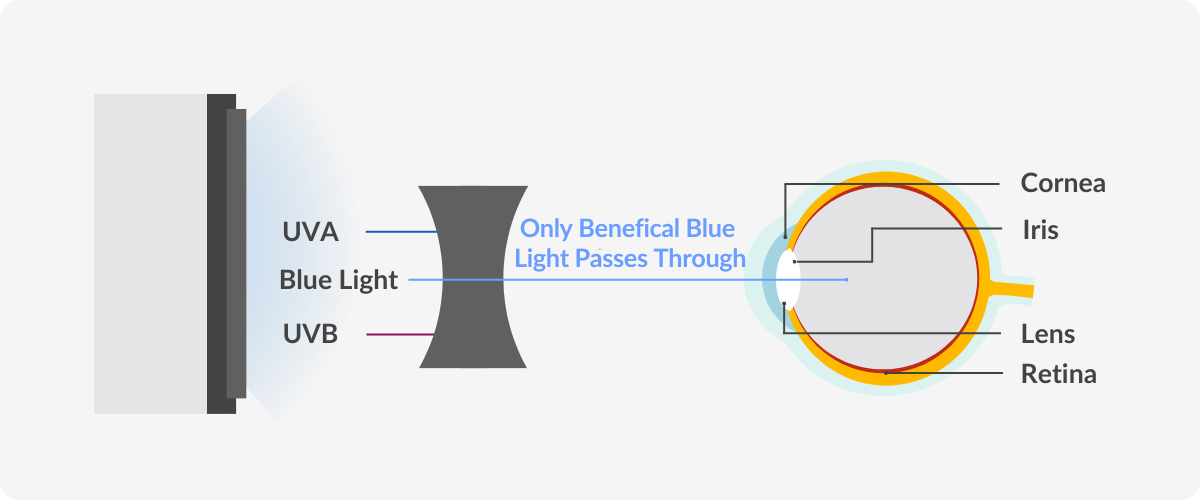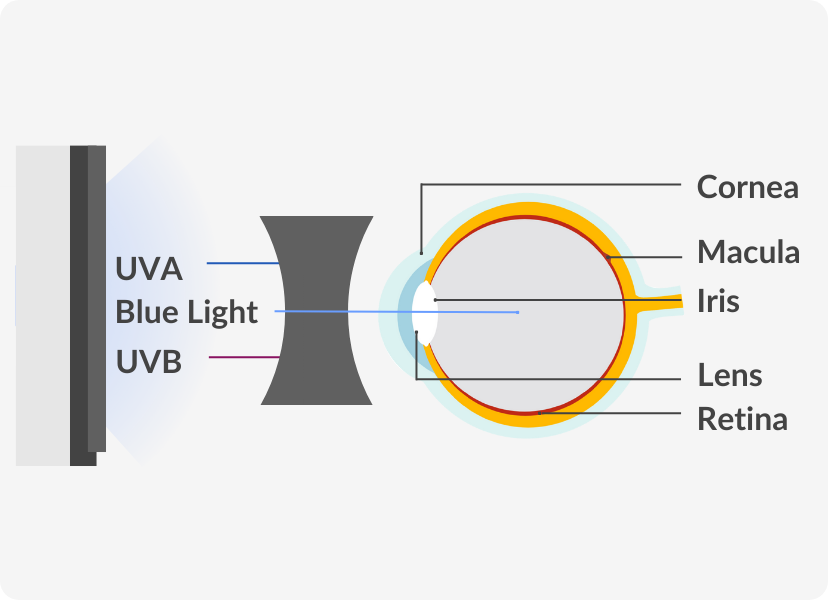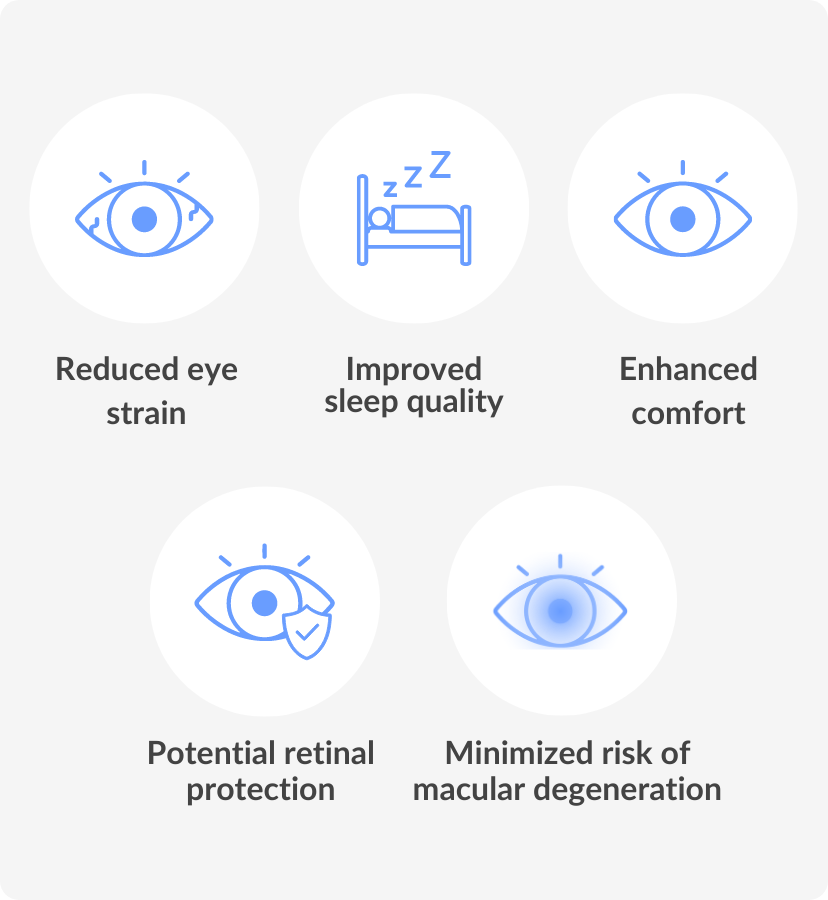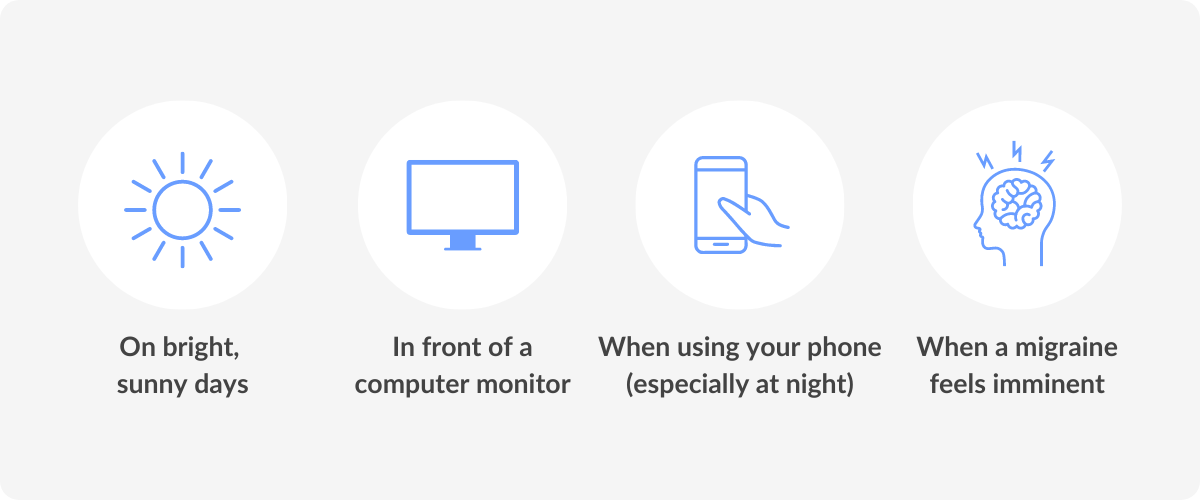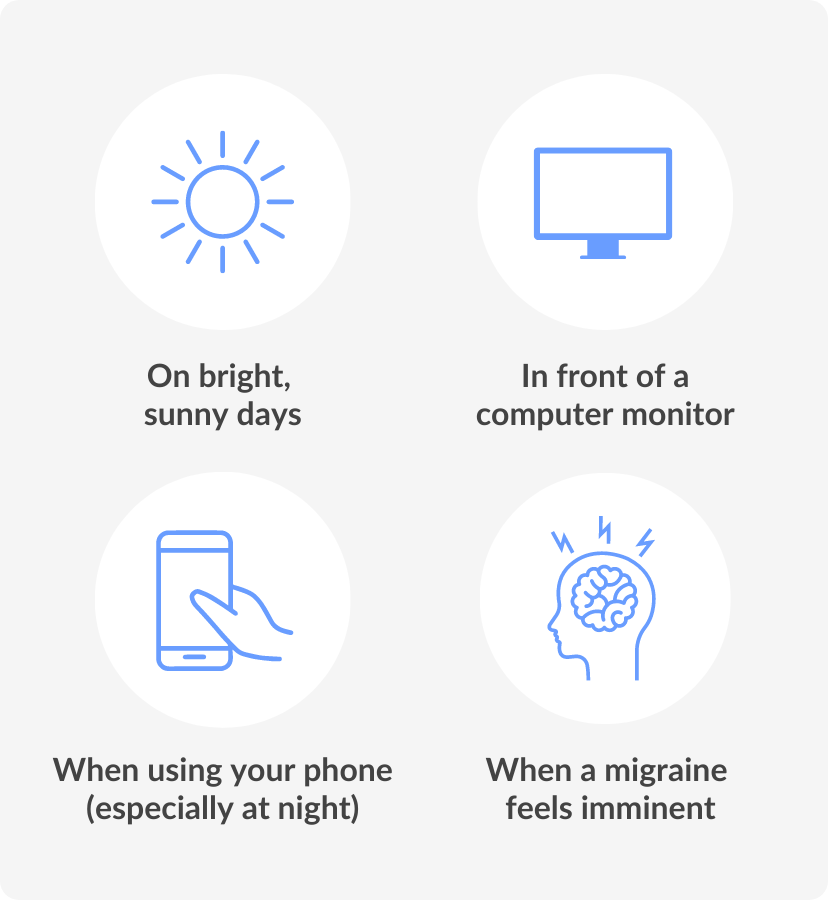Home
⁄
Home
⁄
Computer glasses
By Isabella Sara Novack
Reviewed by
Maria Horan FBDO


Reviewed by
Maria Horan FBDOMaria holds a BSc Honours in Ophthalmic Dispensing and has over 17 years of optical experience.
Updated On Mar 18, 2025
Computer glasses - Specialised eyeglasses that optimise your vision when working on computers or other digital screens. Their viewing zone is at the correct distance for computer work, thereby reducing digital eye strain and discomfort at intermediate distances. They also tend to come with blue light-blocking coating and an anti-reflective coating that reduces glare and improves contrast.










































